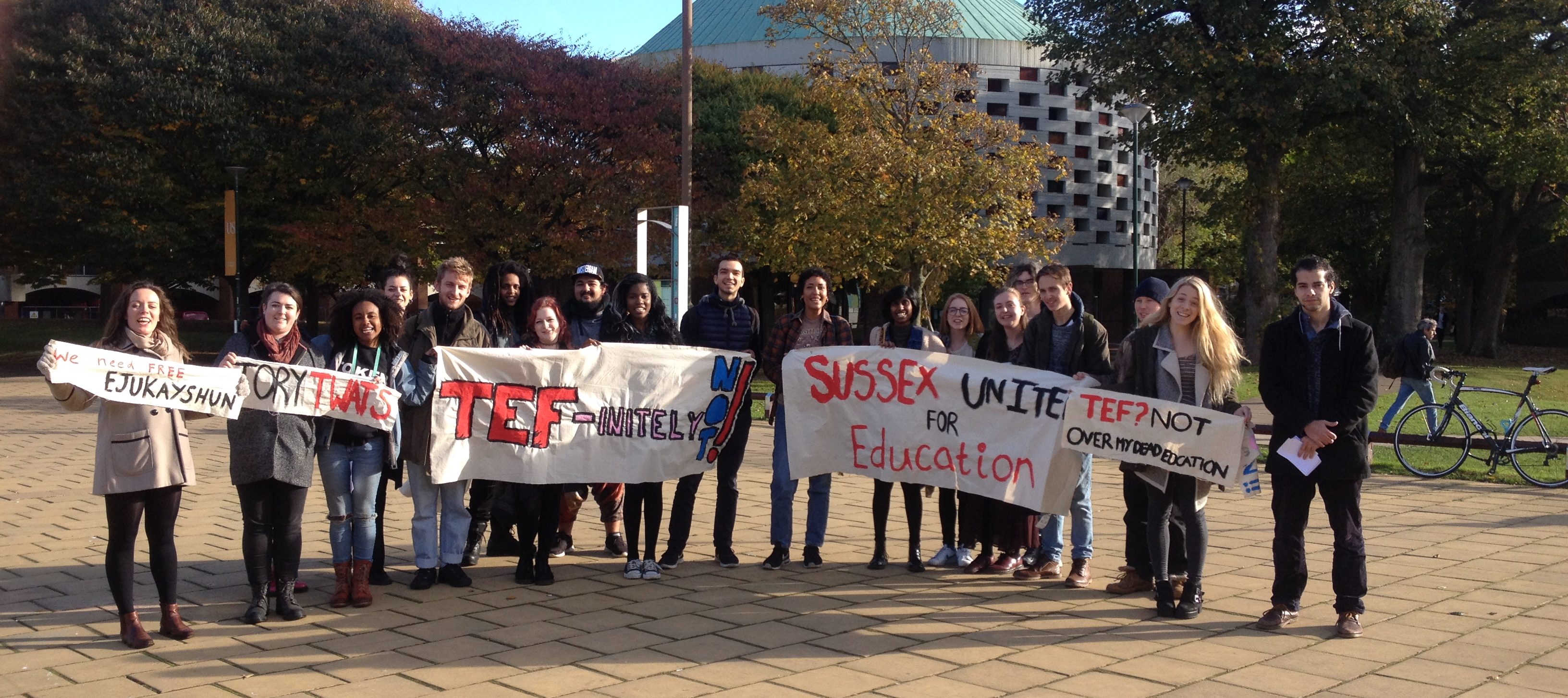The University of Sussex voted to join the Teaching Excellence Framework on the 25th November, despite serious concerns from students, staff and academics.
The TEF, which is opposed by the National Union of Students (NUS), the University and College Union (UCU) and the University of Sussex Students Union (USSU) ranks universities either as gold, silver or bronze.
Universities will be ranked on how many students drop out and the number of leavers who get graduate jobs, as well as relying heavily on the National Students Survey (NSS).
In a University of Sussex Council meeting, USSU President, Annie Pickering asked that “the University of Sussex does not join TEF” and that if Sussex took part in the TEF that “there will be a commitment to provide excellent teaching without raising fees year on year”.
Earlier this year, The Badger revealed that Sussex expected to be rated Silver in the TEF rankings, meaning it will raise tuition fees to £9,250 in 2017/18.
Speaking to The Badger, Ms. Pickering said “The government’s proposed changes to higher education under the TEF are scary and it’s sad to see Sussex join the TEF and not stand for the alternative as education as a public good, as a right for all rather than something that can be bought through higher tuition fees as the government withdraws public funding from institutions”
The NUS has announced they will be coordinating a national boycott of the NSS in an attempt to sabotage the TEF. Sorana Vieru, NUS vice-president for higher education said: “The Union hopes that if enough students boycott the survey – a crucial component of the TEF – it will make the TEF unworkable”.
The Times Education “Mock TEF”, published in June predicted Loughborough, De Montfort and Aston to occupy the top three places. The University of Sussex came in 15th, whilst Oxford was placed 28th.
Earlier this month, The Guardian reported that only six of the 20 English Russell Group universities have confirmed they would definitely take part in the rankings. Four confirmed they are unsure whether to boycott, whilst the rest declined to comment.
Prof Hugh Brady, Vice-Chancellor of Bristol University said “UK institutions have a superb reputation worldwide, and it would be a shame if the government were to damage that through an inappropriate use of metrics”.
The University of Oxford said “We are not convinced that, as currently conceived, the TEF will improve the quality of teaching across the sector”.
Whilst, Prof Anthony Smith, Vice-Provost for Education and Student Affairs at University College London said “There is a risk that this is going to drive a wedge between students and their institutions. They will feel their feedback isn’t being used to improve their experience, but as a vehicle to put their fees up. I’m worried about that”.
Speaking to The Badger, a University of Sussex spokesperson said “We are aware that some Sussex students and staff do not agree with the principles of the Teaching Excellence Framework. The University is currently working with the sector body, Universities UK, to ensure these views are represented to Government and a range of political stakeholders.”
Picture Credit: Tom Robinson


[…] View Article […]